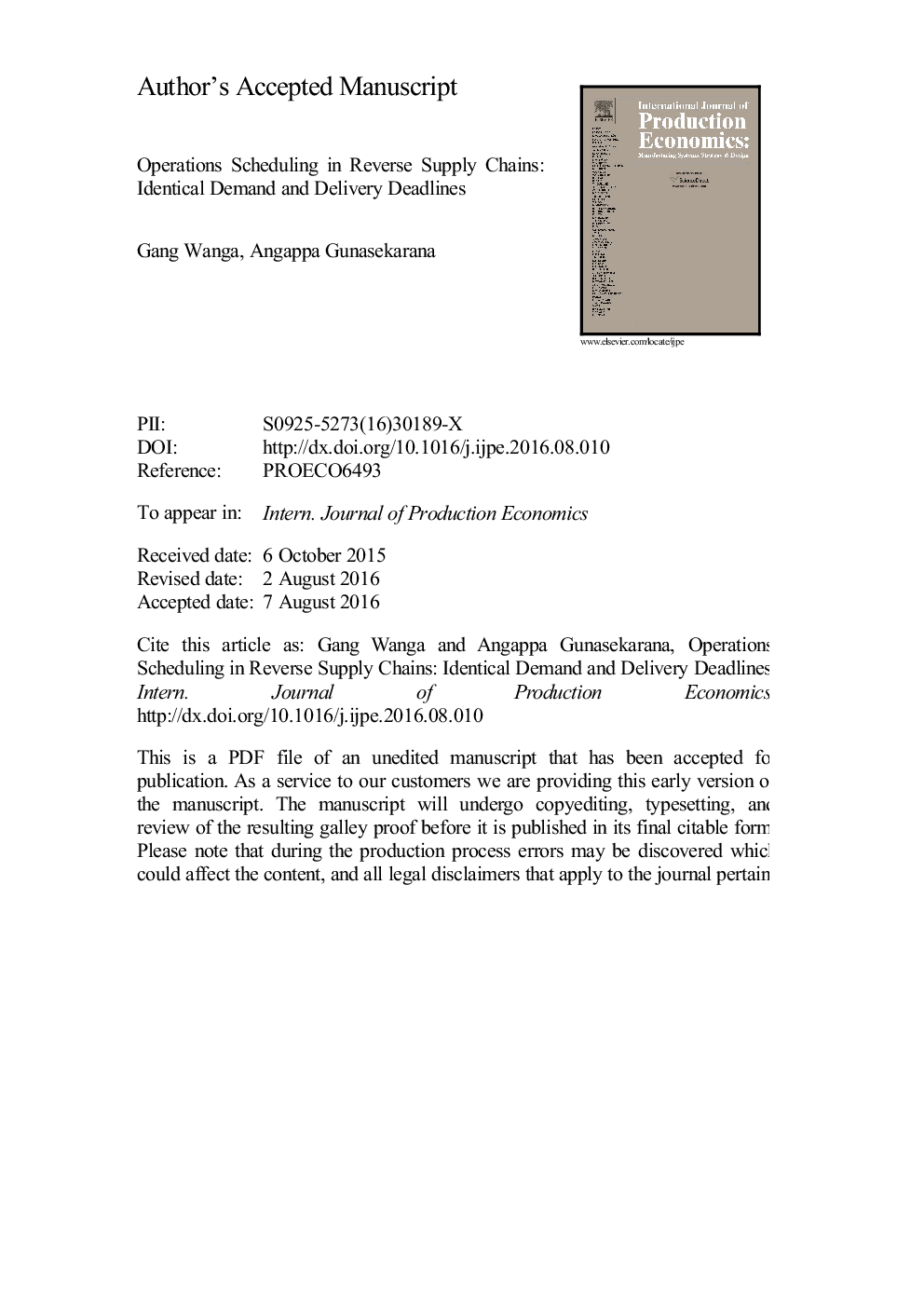ترجمه فارسی عنوان مقاله
برنامه ریزی عملیاتی در زنجیره های عرضه معکوس: ضوابط تقاضای و تحویل یکسان
عنوان انگلیسی
Operations scheduling in reverse supply chains: Identical demand and delivery deadlines
| کد مقاله | سال انتشار | تعداد صفحات مقاله انگلیسی |
|---|---|---|
| 93937 | 2017 | 14 صفحه PDF |
منبع

Publisher : Elsevier - Science Direct (الزویر - ساینس دایرکت)
Journal : International Journal of Production Economics, Volume 183, Part B, January 2017, Pages 375-381
ترجمه کلمات کلیدی
زنجیره عرضه معکوس، برنامه ریزی عملیات یکپارچه، مهلت تحویل، تصمیم گیری بی معنا، برنامه ریزی عدد صحیح مختلط،
کلمات کلیدی انگلیسی
Reverse supply chains; Integrated operations scheduling; Delivery deadlines; Bi-criteria decision making; Mixed integer programming;

